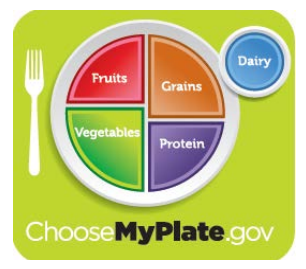BMI: Tips for healthier living
Article Translations: (Spanish)
How can we help children be healthier?
We know that children who are overweight or obese are more likely to have medical problems. Eating a healthy diet and being active can help a child maintain a healthy weight.
What is body mass index (BMI)?
Body Mass Index or BMI is a calculation that uses weight and height to measure if someone is too heavy, too thin or a good weight for age. It is recorded as a number and makes it easy to see how a child compares with children who are the same age using the BMI-for-Age percentile (%).
What does the BMI percentile number mean?
- If the BMI is less than the 5th percentile, your child may be underweight.
- If the BMI is between the 5th and 84th percentile, your child is at a healthy weight.
- If the BMI is between the 85th and 94th percentile, your child may be overweight.
- If the BMI is greater than the 95th percentile, your child may be obese.
Are there other things that can affect weight?
BMI does not tell the whole story. Many things other than height and weight can affect a child's BMI, like:
- Family history.
- Amount of muscle and fat: If a child is very athletic and has a lot of muscle, the BMI may be high even though he or she is not overweight.
Strategies for healthy eating
All children can benefit from the following tips:
- Eat with a plan. Enjoy family meals and snacks that are healthy. Serve lean protein, whole grain foods and limit sweets and processed foods.
- Turn off screens and move. Reduce all screen time to less than 2 hours a day and be physically active 60 minutes or more a day.
- Pop the soda habit. Limit sweet beverages (such as soda, sport drinks, fruit juices and punch) to 1 serving or less a day.
- Practice portion control. Cut food and beverage portions down to the sizes recommended in MyPlate.

- Fill up on fruits and veggies. Eat plenty of fruits and vegetables every day.
- Slow down the fast food. Limit fast food to less than once a week.
- Sound the alarm. Eat breakfast every morning. Avoid a sugar-filled breakfast.
- Come together. Eat meals together as a family at least 5 times a week.
Questions?
This sheet is not specific to your child, but provides general information. If you have any questions, please ask your child's doctor or nurse. Web sites with more information:
Children's Hospitals and Clinics of Minnesota
Last reviewed 8/2015
Reference: Healthy Eating Healthy Weight for Kids and Teens
©2012 Academy of Nutrition and Dietetics (formerly the American Dietetic Association). Adapted with permission.
This page is not specific to your child, but provides general information on the topic above. If you have any questions, please call your clinic. For more reading material about this and other health topics, please call or visit Children's Minnesota Family Resource Center library, or visit www.childrensmn.org/educationmaterials.
© 2024 Children's Minnesota
